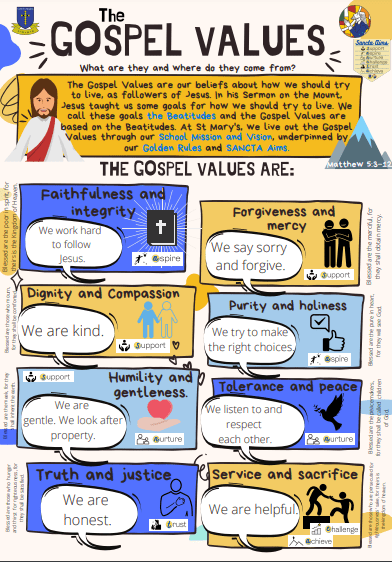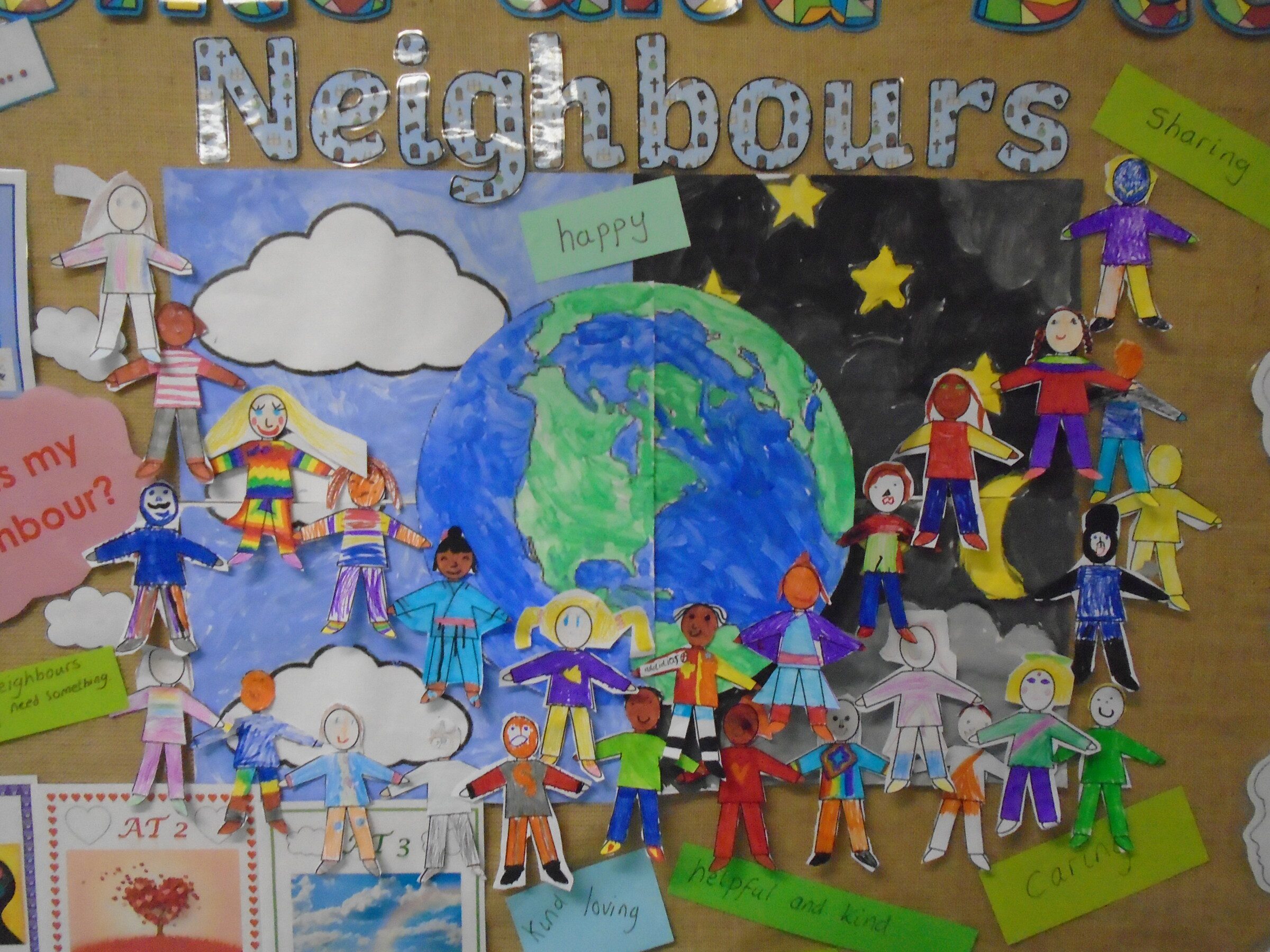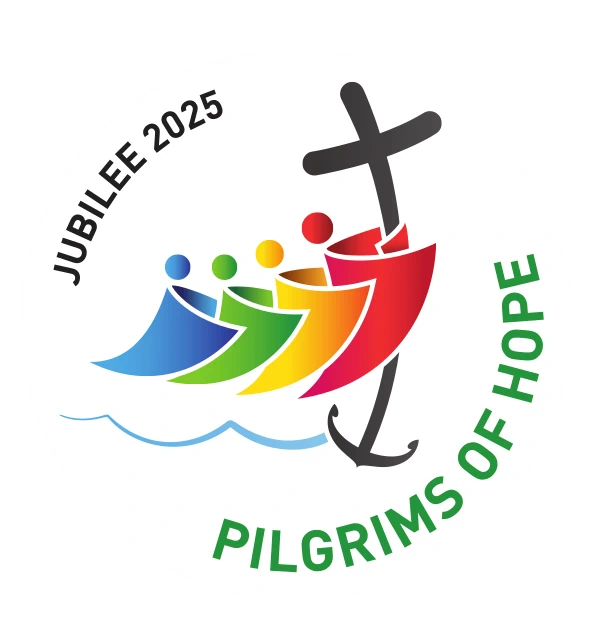Our school vision – ‘We live and learn by journeying with Jesus for the greater glory of God’.
Religious Education is a core subject, therefore finding itself at the centre of our academies. All students receive Religious Education from the moment they start, to the moment they leave school. As an academic subject it is rigorously planned and delivered with the same expertise as all other core subjects. However, Religious Education is more than just an academic subject. It informs our faith, nurtures our personal quest for God and inspires us to continue on our quest for a greater understanding of God and God’s creation. Visit our Religious Education page to find out more.
At St Mary’s; we believe that our faith is at the centre of all we do and as such the catholic life and our daily worship is an integral and special part of our daily life. Our Religious Education (RE) curriculum works alongside the catholic life and collective worship elements in order to develop the children’s’ love and understanding of the catholic faith. We believe that our Religious Education lessons enable children to grow a deeper understanding of our faith and beliefs and enable them to build a better relationship with God and others because by learning and journeying with Jesus we can come to see how we can follow in his footsteps.
‘I will instruct you and teach you in the way you should go; I will counsel you with my loving eye on you’ Psalm 32:8
The aims/objectives of teaching Religious Education at St Mary’s Catholic Voluntary Academy are: –
- that our children come to know God and build a relationship with him through prayer, community and learning.
- to reveal the love of God to each child.
- to gain an understanding of the liturgical year through learning about the churches’ main feasts and festivals, especially those linked to Mary, our patron saint and role-model.
- to be able to talk about, describe and retell (and in KS2 make links) some of the key Bible stories.
- to learn how to grow in the Gospel values of love, compassion, forgiveness, hope, support, humility, justice, integrity, simplicity and non-violence by focusing on what we learn in our religious education studies and how we can apply these gospel values to everyday situations.
- to have the opportunity to study scripture, learn about different ways to pray and enjoy discovering how singing hymns, liturgical dance and times of silence can all be a form of praise and worship and allow us space and time to develop our relationship with God.
- to provide children with opportunities to reflect and renew.
- to help children develop a sense of self and to aspire to be the best person they can be and to celebrate their God given talents and uniqueness.
- to grow in knowledge and understanding of the Sacraments.
- to understand and be respectful of their own and others beliefs and values and to develop positive attitudes to all.
- to learn about other faiths such as Judaism, Hinduism, Sikhism and Islam.
We follow the Nottingham diocesan guidelines and the Come and See Religious education curriculum. This scheme is rich with scripture and prayer, it looks at lives of saints and other religious people. The Come and See curriculum is broken down into topics and themes which echo the liturgical year, teach them about the 7 Sacraments and support children’s understanding of key feast and festivals such as Advent, Lent and Pentecost.
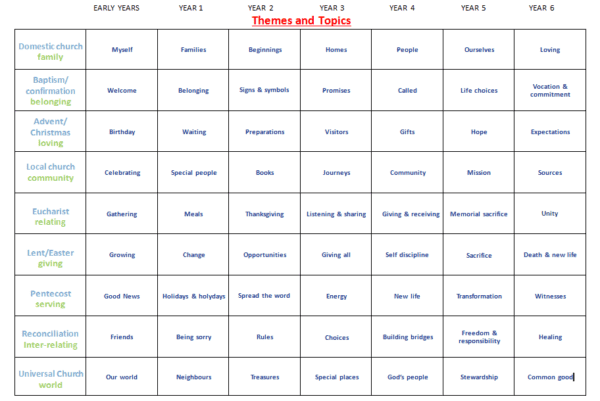
‘Come and See’ is the response Jesus gave to his disciples when they asked: ‘Where do you live?’
“Come,” he replied, “and you will see.” So, they went and saw where he was staying, and they spent that day with him. John 1:39
The Religious Education curriculum is therefore based on the truth revealed by God about ourselves, our life together and our ultimate destiny with God.
The come and see curriculum starts with a series of Big Questions which drive each topic. These questions are open ended and provide the children with opportunities to explore and develop their thinking, challenge themselves and then return to the question at the end of the topic for reflection.
There are 3 topics each term; each beginning with the Big Question and an opportunity to start their learning by exploring their own real-life experiences e.g. in our Families topic we have the Big Question: ‘Why do we have a family? and who is in my family?’ where we look at the diversity of all the different types of families and celebrate what we find special about our own families. Later this topic moves into finding out about Jesus’ family and what it means to be a part of the family of God.
Over each term the children will focus on one topic from each of the 3 themes:
· Church theme – where children learn about the community of faith; the local and universal church.
· Sacramental theme – where children get to explore and discover more about the 7 Sacraments.
· Christian living – where children learn about a way to live the faith through discovering more about the Liturgical year: Advent/Christmas, Lent/Easter and Pentecost.
Further to this, children will spend some time studying an aspect of Judaism each year (Advent term); learning more about RSHE (Relationships, Sex and Health Education) in the Lent term and another faith (Sikhism, Hinduism and Islam are all taught over a 3 year cycle) in the Pentecost term.
Please refer to our RSHE curriculum page for further details.
To find out what your child’s current topic is all about and how you can support their learning at home please follow the link to our parents Come and See termly newsletters.
Letter to Parents – Advent Term 2022
We will share our RE Parents’ Pentecost termly newsletter with you as soon as we receive this from the diocese.
Foundation Stage
In Nursery and Reception, Religious Education is delivered through the continuous play both inside the classroom and in the outdoor environment. Children are given the opportunity to explore aspects of faith through prayer times, circle time discussions and hands on explorative play opportunities such as re-enacting a Baptism or visiting the local church.
The children follow the Early Years Foundation Stage Framework, in which aspects such as PSED (Personal, Social, Emotional Development) and UTW (Understanding of the World) provide opportunities for teachers to embed aspects of the Come and See themes into classroom activities in an age appropriate way.
KS1 and KS2
In KS1 and KS2 children learn about the churches’ feasts, festivals and Sacraments as well as having plenty of opportunities to study scripture. In KS1 the focus of learning is all about recognising, talking about and sharing what they learn; describing and retelling stories and events; and reflecting upon what they have learnt. In KS2 this continues with the addition of giving reasons, explaining signs and symbols, comparing or by making links between scripture, prayer, hymns or quotes. Throughout KS1 and KS2 children discuss how they can apply and live out this learning in their everyday lives through our thoughts, words and actions. In both KS1 and KS2 there are opportunities to focus on aspects such as awe and wonder as well as to be able to listen, ask and respond to questions and express their ideas and opinions.
The words in bold act as driver words for the children’s’ learning as they progress through school.
Furthermore, we have a whole school overview document showing coverage of topics from KS1 to KS2.
Religious Education is managed in such a way as to facilitate different styles of learning.
Opportunities are given for:
- developing a religious literacy and understanding of their faith by reading, discussing, retelling and describing a range of Scripture and studying texts and quotes of religious people such as Oscar Romero.
- painting, making and crafting responses to Religious themes and bible stories
- writing in the style of scripture such as writing your own psalm or a letter in style of St Paul
- creating or performing liturgical dance
- using drama skills such as conscience alley, freeze frame, re-enacting and hot seating to gain a greater understanding of bible stories or religious events such as the Eucharist or Baptism.
- discussion and group tasks to challenge thinking and allow for exploration and opportunity to share their own thoughts, feelings and responses.
- to write prayers
- to reflect upon and celebrate what they have learnt through activities such as class liturgies linked to the end of each topic.
- to make links between hymns, prayers, scripture and how we live out our life showing loving kindness.
- to make links between hymns, prayers, scripture and how other people such as saints or modern day religious have been able to follow the gospel values
- to explore charities and think about the wider community and aspects such as caring for God’s creation.
In addition to the above, staff also take opportunities to develop and enrich the Religious Education curriculum through participating in local events such as Stockport Schools Faith days and by providing our own extra-curricular activities such as ‘Bible Alive’: a special opportunity for children to take a day to fully engross themselves in a particular Bible story, based on a school theme, which they can then make various responses to and celebrate their learning with the whole school through assemblies and display.
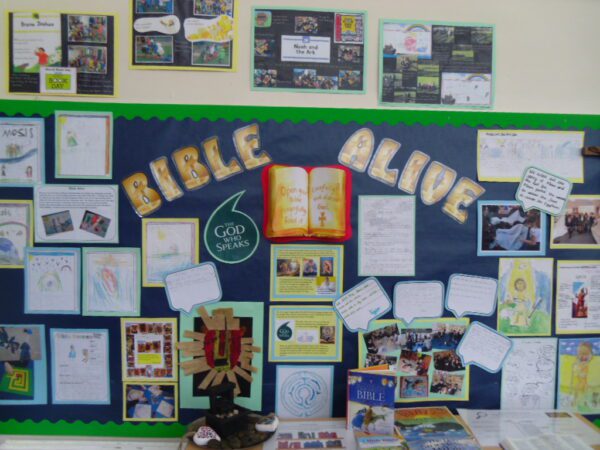
Feedback is an integral part of all lessons; it is an essential tool to enable pupil’s progress. A range of feedback used during RE lessons:
Peer Feedback – Within all lessons, pupils are given an opportunity to feedback to each other, whether it is during group work or through the opportunity to discuss their learning and understanding with each other during Learning Partner times.
Teacher Feedback – Verbal feedback is given throughout all lessons. Teachers are giving feedback to pupils as they continually assess their learning. This is evident through 1:1, small group and whole class feedback. Teachers will also mark books in line with the school marking policy, making comments where appropriate to enable pupils to take their learning forward.
Self-Assessment Feedback – Pupils are encouraged in every lesson to self-assess in the form of reflection, editing and responding to marking. At the end of each topic pupils are given a chance to reflect upon and celebrate their learning during a planned class ‘respond’ session, which often contains a small liturgy. There is also an opportunity for each child to look over the key objectives of that topic and make an individual response as to how they feel they are progressing.
Each topic teachers will also review an individual’s learning of the key objectives form the topic and use this to inform planning and guide pupils to the next steps. In addition to this, once a term each child will complete a special piece of work based on one of the 3 Come and See themes which will be used to establish the level of attainment and progress and to inform future planning.
Religious Education results and data are presented to parents as part of our end of year reports. There is also an opportunity to discuss the children’s learning and any targets at our parents evenings in the Advent and Lent terms.
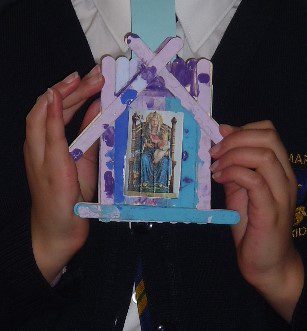
Each class has access to bibles and prayer books as well as an area for prayer and reflection. KS2 classes have further resources linked to helping children build links and connections and these are created by the specific year groups. There are some other faith resources, which are stored centrally for the shared use of classes across the school.
We have specially dedicated areas of school where children can go to spend time in quiet contemplation or to share with their peers their faith. One of these spaces is situated outside: our Mary Garden and the other is indoors, our Holy Hub. The Holy Hub is set up with religious books and artefacts and a range of seating and is also used by groups or classes as part of their learning or when specific groups such as Y6 guiding lights or the school Faith Friends need to meet or where children can go to plan school liturgies or have moments of peace.
Knowledge webs for each topic can be found on the class Teams page.
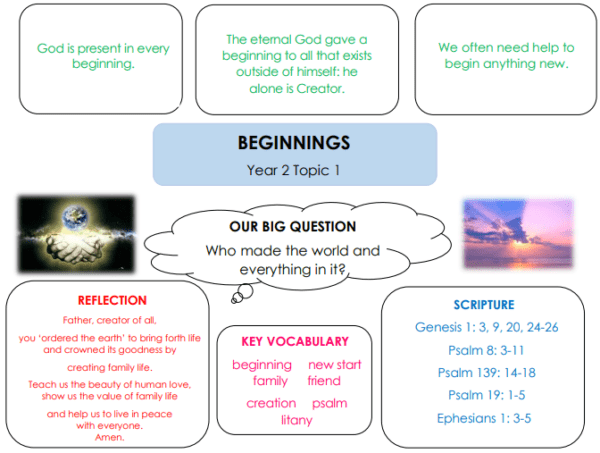
As a catholic school we put our faith at the centre of all we do and learn, as such our Religious Education and Collective Worship form an integral part of the overall Catholic Life of the school and we strive to embed the values we learn in our Religious Education lessons into all other subjects through how we choose to interact and support each other. The values we learn through our RE lessons also support our whole school behavioural plan as our rules are based around the Gospel values, and in particular the message:
“love one another as I have loved you”. John 13:34
Staff are also encouraged to make links to any other subjects in order to provide a relevant and meaningful curriculum for pupils.
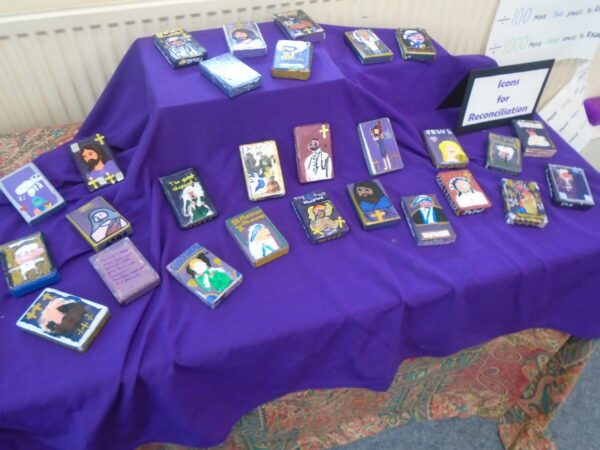
- We have strong links to the local parishes of Marple Bridge and Marple and children are often given the opportunity to attend mass at our local Parish church or make visits there to enhance their studies.
- At significant liturgical times of the year we share mass with local parishioners who are invited into school; attend one of our parishes to sing carols and share the Christmas and Easter stories with parents through school performances.
- We have visits from both parish priests as part of our celebration of mass but also to visit classes and talk with the children.
- We take part in events such as Stockport Faith day and have visitors from various charities talking at our assemblies.
- During our other faith weeks children have the opportunity over the course of their time at St. Mary’s to visit the Jewish synagogue and we also from time to time we invite speakers from other faiths to make visits.

The Subject leader has a variety of roles. These include:
- Taking the lead in policy development and quality assuring the planning, delivery and assessment of Religious Education.
- Supporting colleagues in their development and implementation of the teaching of Religious Education.
- Monitoring progress in Religious Education and advising the Senior Leadership Team and Governors on action needed.
- Using release time to support colleagues and disseminate information
- Auditing resources, monitoring and directing the spending in relation to the subject
- Keeping up-to-date through research and continuing professional development and attendance at Religious Education co-ordinators meetings.
- Encouraging staff to attend relevant training and planning meetings to support them in the delivery of the subject.
- To work alongside the Senior Leadership team to produce the annual data for the diocese.


